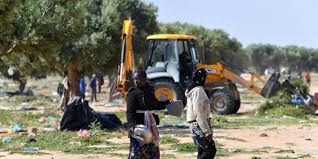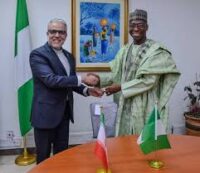The Democratic Republic of the Congo (DRC) and Rwanda have made significant strides toward economic integration and political stability by agreeing on a framework of cooperation across several key sectors. This move follows the landmark peace deal signed on June 27, 2025, in Washington, DC, with the support and facilitation of the United States. The agreement underscores a renewed effort to rebuild trust and foster collaboration between the two historically volatile neighbors, especially in the wake of prolonged conflict in eastern DRC involving Rwanda-backed M23 rebels.
According to the U.S. State Department, the new framework includes cooperation on critical issues such as energy development, regional infrastructure, mineral supply chains, national park preservation, and public health systems. This comprehensive approach is seen as both a peace-building mechanism and an economic development strategy. The two governments have affirmed their commitment to mutual respect for sovereignty, particularly in the exploitation and export of natural resources. Both countries agreed on the need to build local capacity for mineral processing and transformation to reduce dependency on foreign refiners and ensure that the region reaps the economic benefits of its vast natural resources.
The DRC, often referred to as one of the world’s richest nations in terms of mineral wealth, continues to face conflict in its eastern provinces—largely driven by competition over valuable resources like tantalum, gold, cobalt, lithium, and copper. The recent agreement recognizes the link between illegal exploitation of these minerals and the funding of armed groups, and aims to sever that connection through regulated trade and industrial transformation.
Crucially, the deal has a geopolitical dimension as well. It aligns with U.S. interests in promoting sustainable development and democratic governance while also countering China’s growing influence in Africa’s resource-rich regions. The two nations pledged to enhance cross-border infrastructure and integrate their economies more fully with the U.S.-backed Lobito Corridor, a major transportation initiative aimed at improving access to global markets.
Among the flagship projects mentioned are the Ruzizi III hydropower initiative and the Lake Kivu methane gas exploitation program. These energy-focused collaborations are intended not only to meet local energy demands but also to support green and sustainable economic development in the Great Lakes region. Both governments are now prioritizing financing for Ruzizi III and aim to responsibly develop Lake Kivu’s methane resources to meet rising domestic and industrial energy needs.
While the deal has been hailed as a breakthrough, international observers and human rights groups remain cautiously optimistic. Organizations like Human Rights Watch have labeled it “a mineral deal first, an opportunity for peace second,” highlighting concerns that economic interests could overshadow the humanitarian and security dimensions of the agreement. Still, the deal contains provisions to include feedback from civil society and the private sector, with a draft framework already under review. This participatory approach could prove pivotal in building lasting peace and inclusive growth.
The agreement’s announcement was followed by the first meeting of a joint oversight committee, signaling early steps toward the implementation phase. Although several key commitments remain pending, the momentum is growing. As the DRC and Rwanda navigate this fragile but hopeful path toward peace and development, the eyes of the international community are watching closely, especially given the region’s potential to emerge as a critical player in the global clean energy transition due to its abundance of strategic minerals.
With renewed international backing, mutual commitments to sovereignty, and concrete plans for economic transformation, the DRC-Rwanda peace and cooperation agreement may not only resolve decades of conflict but also chart a sustainable future for millions in the region.














Leave a comment